Outdated browser
Next Stage Grants
2022
Shortlist

Oper Leipzig - Sustainable Costumes - cc Kirsten Nijhof (1) © i
Presentation
Oper Leipzig and Icelandic Opera have acknowledged the responsibility of major cultural institutions toward climate change. They aim to reach climate targets set by the European Union and their national and local governments. Shifting focus from a broader perspective to one particular area - in this case: the costume department - is the logical next step. Sustainable Costumes was inspired by the work and research of Urs Dierker on sustainable transition in the field of costume design. Dierker is a textile artist, researcher, and founder of the Circular Costume Design platform.
The Sustainable Costumes project aims to reveal barriers and opportunities for sustainable transitions on technological and social levels in the two participating opera houses. It investigates different phases several opera productions to assess how sustainable changes can be achieved using various strategies – green design (focus on material), life-cycle thinking (focus on processes) and participatory practices (focus on social aspects of change). The driving question of the Sustainable Costume project is: how can circular economy practices mitigate environmental impacts and ensure long-term sustainability transformations within the value chains and networks of costume design for opera production? The Sustainable Costumes project will find answers to this question by using participatory design methods to include from the start the very people who define opera productions and who design, make and handle costumes. Practical research outcomes will be directly applicable to current opera processes. They can be shared, including new models for material circularity between productions and institutions, based on research with the two partner operas and their supplier networks. This includes exploring digital tools for materials management, systems for sustainable materials procurement and logistics, and policy recommendations and design briefs as guidelines for creative teams.
Project Team
The team consists of the external expert Urs Dierker and the respective representatives of the two opera houses. Project management in Rejkjavik is in the hands of Steinunn Ragnarsdottir. In Göttingen, a larger team from the costume department is involved. Dirk Becker: Dirk Becker, trained at the Salzburg Mozarteum, works as a stage and costume designer in drama, ballet and opera. In 2022, Dirk Becker completed training to become a transformation manager and sustainability ambassador. From the 2022/23 season, he will be head of design of Leipzig Opera. Silke Wey: Born in Chemnitz. She was trained as a dressmaker. Professional experience in the fashion sector. Studied clothing design at the Berlin University of Applied Sciences. Since 2014 costume director at the Leipzig Opera. Roy Böser: Studied fashion design at the Faculty of Applied Arts in Schneeberg. Since the 2020/2021 season, production manager of the costume workshops at the Leipzig Opera. With this team composition, leadership and project management (Steinunn Ragnarsdottir) complement each other with excellent technical knowledge of the workshops (Silke Wey, Roy Böser) and expertise in transformation management and sustainability (Dirk Becker). The current state of research in the field of material research and material design comes from the participation of an external inspiration: Urs Dierker. (CV and material see below)

Support sustainable innovation in opera and dance
 Back to 2022 Shortlist next stage
Back to 2022 Shortlist next stage










